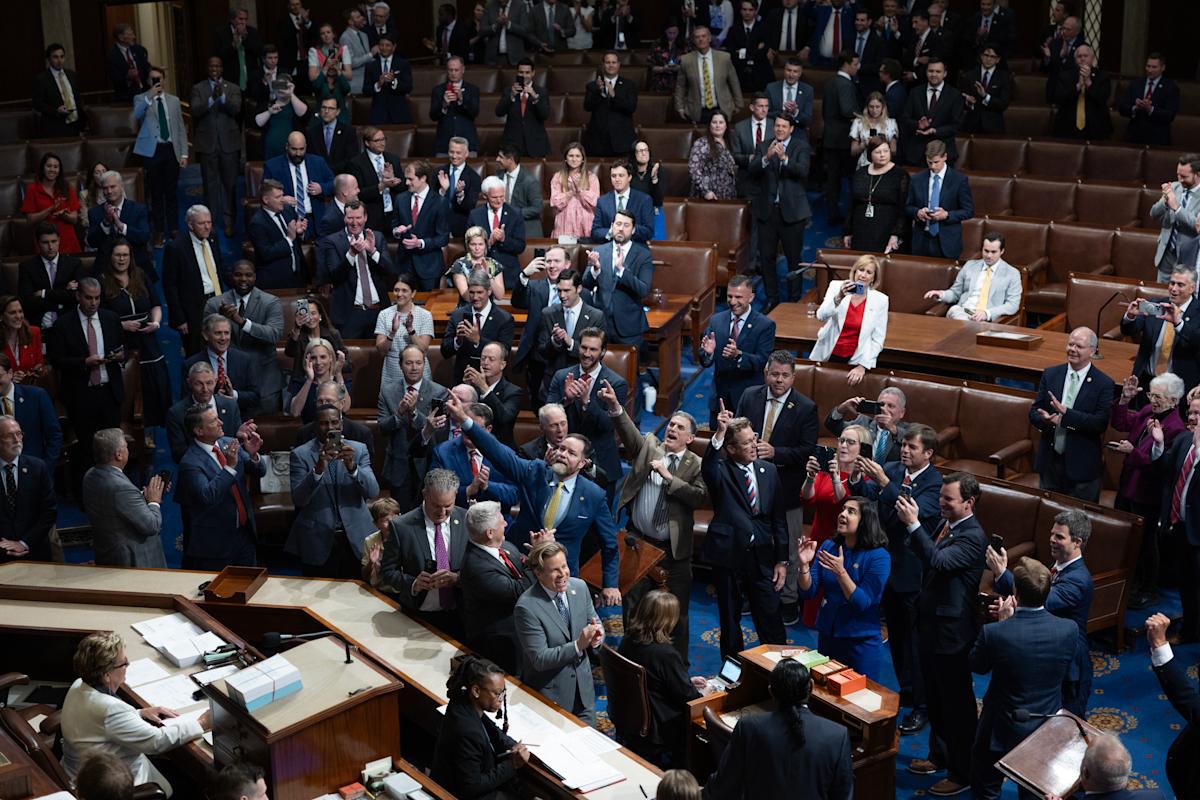Bitcoin Soars to Record High Amid Key Crypto Bills in DC This Week

Bitcoin Hits Record High Amid Legislative Developments in Washington
Bitcoin Surges to New Heights
Bitcoin (BTC-USD) experienced a significant increase on Monday, surpassing the $123,000 mark as Congress kicks off “Crypto Week” in Washington, D.C. This week is pivotal, with the House of Representatives set to deliberate on three important pieces of legislation concerning cryptocurrencies.
Stocks Linked to Crypto Also Rise
The upward trend in Bitcoin has been mirrored by a notable rise in stocks associated with the cryptocurrency sector. Companies like Coinbase (COIN), Robinhood (HOOD), and the recently listed stablecoin issuer Circle (CRCL) have seen their stock prices reach all-time highs. Notably, Circle’s stock has skyrocketed over 500% since its initial public offering in June.
Key Legislation: The GENIUS Act
The first piece of legislation on the agenda is the GENIUS Act, which aims to establish the first federal framework for stablecoins—cryptocurrencies pegged to the U.S. dollar. This bill includes essential provisions that restrict stablecoin issuance to regulated entities and mandate that these issuers maintain dollar reserves or equivalent liquid assets on a one-to-one basis. The Senate approved this legislation on June 17, and it is now poised for a vote in the House on Tuesday, with Republican leaders aiming to send it to President Trump the same day.
Related Reading
How would Trump’s strategic bitcoin reserve work?
The CLARITY Act: A Major Legislative Challenge
The most significant item on the legislative agenda this week is the CLARITY Act, a comprehensive package that seeks to assign regulatory oversight of all digital assets—excluding stablecoins—to either the Securities and Exchange Commission (SEC) or the Commodity Futures Trading Commission (CFTC), depending on the nature of the asset.
Defining Digital Commodities
Under this act, “digital commodities” will be classified as digital assets whose value is derived from blockchain technology, placing them under the jurisdiction of the CFTC. Conversely, digital assets marketed to investors as securities will primarily fall under SEC regulation.
Political Hurdles Ahead
While a similar provision garnered bipartisan support last year, passing the CLARITY Act may prove challenging. Many Democrats are wary of the Trump family’s involvement in the crypto market and are advocating for the inclusion of ethics provisions, complicating the path to achieving the necessary 60 votes.
The Anti-CBDC Surveillance State Act
The third bill scheduled for a vote this week is the Anti-CBDC Surveillance State Act. This legislation aims to prevent the Federal Reserve from establishing a central bank digital currency (CBDC) and restricts the Fed Board of Governors from utilizing a CBDC for monetary policy purposes.
Next Steps for Legislation
Should the CLARITY Act and the Anti-CBDC Act pass in the House, they will advance to the Senate for further consideration before potentially reaching President Trump’s desk for final approval.







